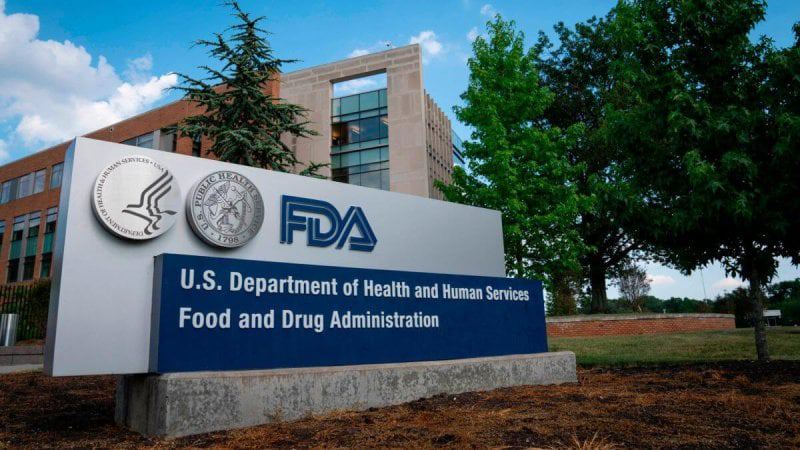Viewpoint: U.S. taxpayer funded UN sub-agency International Agency for Research on Cancer (IARC)’s broken cancer evaluation system hurts consumers and the regulatory process
Viewpoint: U.S. taxpayer funded UN sub-agency International Agency for Research on Cancer (IARC)’s broken cancer evaluation system hurts consumers and the regulatory process


TPAF [Taxpayers Protection Alliance Foundation] has even been able to use FOIA [Freedom of Information Act] requests to hold global taxpayer-funded bureaucracies accountable. Last July, the World Health Organization’s (WHO) International Agency for Research on Cancer (IARC) released a grave assessment calling the non-sugar sweetener aspartame (found in plenty of diet drinks) “possibly carcinogenic to humans.” Health experts have pushed back on this finding, calling the research behind the review “flawed.” At the same time, the WHO and the Food and Agriculture Organization (FAO) Joint Expert Committee on Food Additives (JECFA) published their own, more nuanced assessment of the sweetener.
TPAF was curious to see how federal food regulators felt about these assessments and submitted a FOIA to find out more. The FOIA response painted an interesting picture. After receiving the WHO’s mixed messages on aspartame, U.S. Department of Agriculture (USDA) regulator Mary Frances Lowe was understandably upset. She wrote to her colleagues that the WHO (IARC) had “[d]isappointing risk communication.”
From then on, the FDA took the lead in undoing the damage caused by IARC and convincing the public and media that JECFA had gotten the science correct. FDA employee Shruti Kabadi noted in a July 14 email, “JECFA concluded that there was no concern carcinogenicity of oral exposure to aspartame in animals. There was no concern for [the] genotoxicity of oral exposure to aspartame. The evidence of association of aspartame consumption and cancer in humans is not convincing.”
Her colleague Sabine Francke quickly wrote to Shruti: “I saw the Jecfa report – [an] excellent rebuttal to the IARC attempt!! Science prevailed.”
This FOIA response made it abundantly clear that the taxpayer-funded IARC takes shortcuts with scientific research to the detriment of consumers and the federal regulatory process.
The fight for honesty and transparency in government is just beginning.
This is an excerpt. Read the original post here

 | Videos | More... |

Video: Nuclear energy will destroy us? Global warming is an existential threat? Chemicals are massacring bees? Donate to the Green Industrial Complex!
 | Bees & Pollinators | More... |

GLP podcast: Science journalism is a mess. Here’s how to fix it

Mosquito massacre: Can we safely tackle malaria with a CRISPR gene drive?

Are we facing an ‘Insect Apocalypse’ caused by ‘intensive, industrial’ farming and agricultural chemicals? The media say yes; Science says ‘no’
 | Infographics | More... |

Infographic: Global regulatory and health research agencies on whether glyphosate causes cancer
 | GMO FAQs | More... |

Why is there controversy over GMO foods but not GMO drugs?

How are GMOs labeled around the world?

How does genetic engineering differ from conventional breeding?
 | GLP Profiles | More... |

Alex Jones: Right-wing conspiracy theorist stokes fear of GMOs, pesticides to sell ‘health supplements’




 From plastic coasters to human hearts: Inside the race to print the human body
From plastic coasters to human hearts: Inside the race to print the human body A single high dose of LSD can ease anxiety and depression for months
A single high dose of LSD can ease anxiety and depression for months CRISPR pork: U.S. approves first gene-edited pigs for consumption
CRISPR pork: U.S. approves first gene-edited pigs for consumption ‘SuperAgers’: Why some people have the brains and memory capacity of people decades younger
‘SuperAgers’: Why some people have the brains and memory capacity of people decades younger  Baby food panic, brought to you by trial lawyers hoping to prosecute by press release
Baby food panic, brought to you by trial lawyers hoping to prosecute by press release Viewpoint: Life and death decisions: RFK, Jr.’s shady FDA “expert panels” operate in secret with no transcripts or conflict of interest reviews
Viewpoint: Life and death decisions: RFK, Jr.’s shady FDA “expert panels” operate in secret with no transcripts or conflict of interest reviews From ‘Frankenfood’ to superfood: Can the purple tomato overcome GMO myths to win over consumers?
From ‘Frankenfood’ to superfood: Can the purple tomato overcome GMO myths to win over consumers? When farmers deny science: The hypocrisy hurting agriculture’s credibility
When farmers deny science: The hypocrisy hurting agriculture’s credibility
